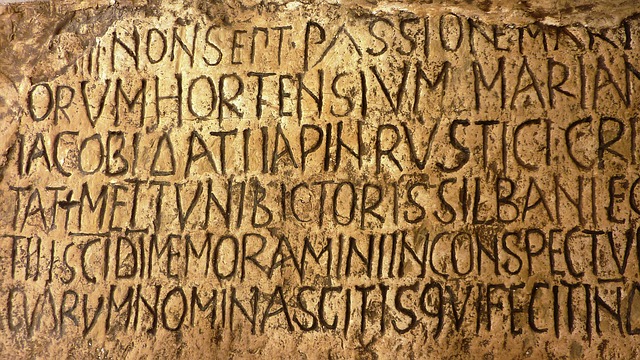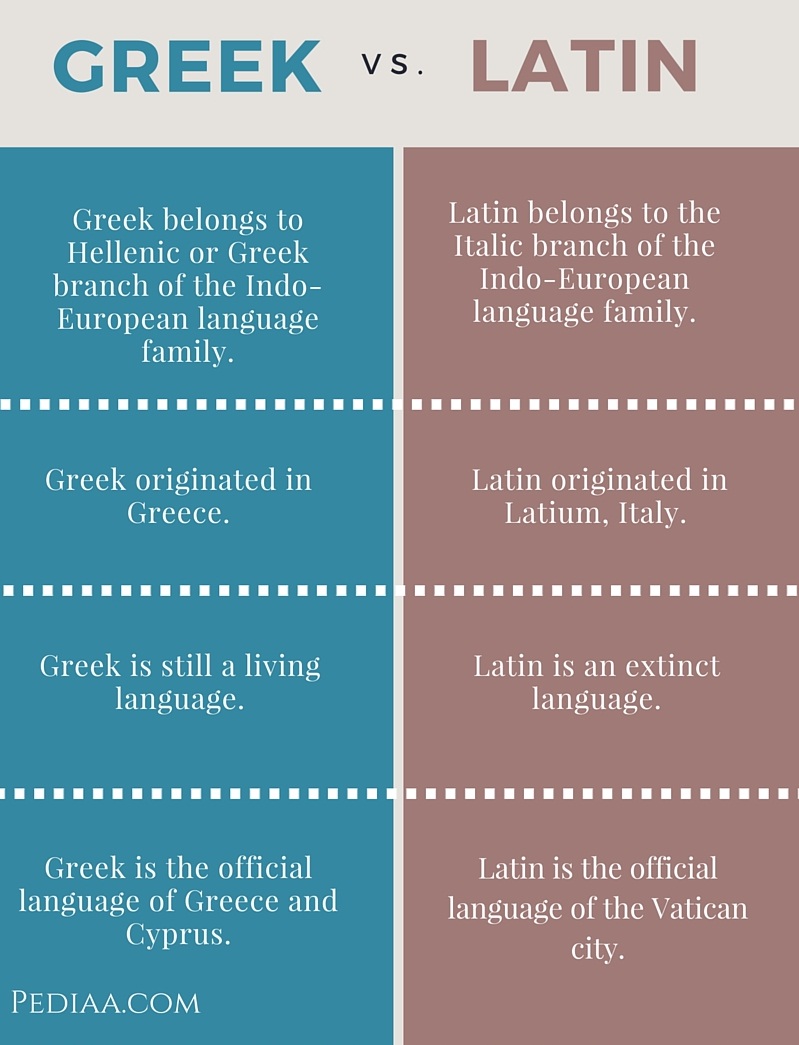Latin greek between difference language infographic pediaa vatican city
Table of Contents
Table of Contents
Have you ever wondered which language came first, Greek or Latin? It’s a question that has intrigued historians, linguists, and language enthusiasts for centuries. The answer may surprise you, as the history of these two ancient languages is more intertwined than you might expect.
Pain Points Related to Which Language Came First Greek or Latin
One pain point related to this question is the confusion surrounding the origins of these two languages. Some people assume that Greek must have come first, since it is often referred to as the “mother of all languages.” Others argue that Latin was the first language, as it was spoken by the powerful Roman Empire and had a significant impact on the development of Western civilization.
Answer to Which Language Came First Greek or Latin
The truth is that Greek is the older language, with a documented history dating back to around 1450 BCE, while Latin emerged much later, in the 6th century BCE. However, Latin did have a significant influence on the development of Western languages, including English, French, and Spanish, due to its widespread use during the Roman Empire.
Main Points Related to Which Language Came First Greek or Latin
In summary, while Greek is the older language, Latin had a profound impact on the development of Western civilization, and its influence can still be seen in modern languages today. The answer to which language came first, Greek or Latin, is not a simple one, as their histories are intertwined and their impact on language and culture is significant.
The Impact of Which Language Came First Greek or Latin on History and Culture
As someone who is passionate about language and history, I have always been fascinated by the relationship between Greek and Latin, and how their histories are intertwined. When I first learned about the impact of these two languages on Western civilization, it opened up a whole new world of understanding about the origins of culture, language, and philosophy.
One of the most interesting aspects of this topic is how the influence of Latin can still be seen in modern language. For example, many English words have Latin roots, such as “et cetera,” “status quo,” and “terra firma,” to name a few. Learning about the origins of these words and their connection to Latin has deepened my appreciation for the language and its impact on modern society.
The Importance of Learning about the Relationship between Greek and Latin
Studying the relationship between Greek and Latin is not only fascinating from a historical and linguistic perspective, but it also has practical applications in modern society. Understanding the roots of language and culture can help us to better understand ourselves and our place in the world, and can also help us to communicate more effectively with people from different cultures and backgrounds.
The Future of Greek and Latin Studies
While the study of Greek and Latin may seem outdated to some, it is still incredibly relevant in today’s global society. As we continue to become more connected through technology and travel, understanding the origins of language and culture will become increasingly important. By studying the relationship between Greek and Latin, we can gain a deeper understanding of our past and our future as a society.
Question and Answer Section about Which Language Came First Greek or Latin
Q: Did Latin borrow words from Greek?
A: Yes, Latin borrowed many words from Greek, particularly in the areas of philosophy, science, and art. This borrowing was due to the influence of Greek culture on the Roman Empire.
Q: What is the difference between Greek and Latin?
A: While both languages share some similarities, such as their use of the alphabet and their impact on Western culture, there are also significant differences between the two. For example, Greek has a more complex verb system and a more nuanced vocabulary, while Latin has a more rigid syntax and a greater emphasis on grammar.
Q: Why did Latin become the language of the Roman Empire?
A: Latin became the language of the Roman Empire due to its central location in Italy and its widespread use among the Roman elite. Over time, it became the language of government, law, and literature, and its influence spread throughout the Western world.
Q: What is the future of Greek and Latin studies?
A: While the study of Greek and Latin may seem outdated to some, it is still incredibly relevant in today’s global society. As we continue to become more connected through technology and travel, understanding the roots of language and culture will become increasingly important. By studying the relationship between Greek and Latin, we can gain a deeper understanding of our past and our future as a society.
Conclusion of Which Language Came First Greek or Latin
In conclusion, while the question of which language came first, Greek or Latin, may seem like a trivial one, its answer has important implications for the study of language, culture, and history. Both of these ancient languages have had a significant impact on Western civilization, and their study continues to be an important part of our cultural heritage.
Gallery
Difference Between Greek And Latin

Photo Credit by: bing.com / vulgar
Ancient Greek Language Expert Speaks With Students At Lunch Table

Photo Credit by: bing.com / spoke fluent
How Many Latin Words Derived From Ancient Greek? - Quora
Photo Credit by: bing.com / derived
Difference Between Greek And Latin

Photo Credit by: bing.com / latin greek between difference language infographic pediaa vatican city
Ancient Latin (Language) - HistoriaRex.com

Photo Credit by: bing.com / latin ancient language inscriptions rome marble attend competition students state historiarex civilization timeline old sutori italy





